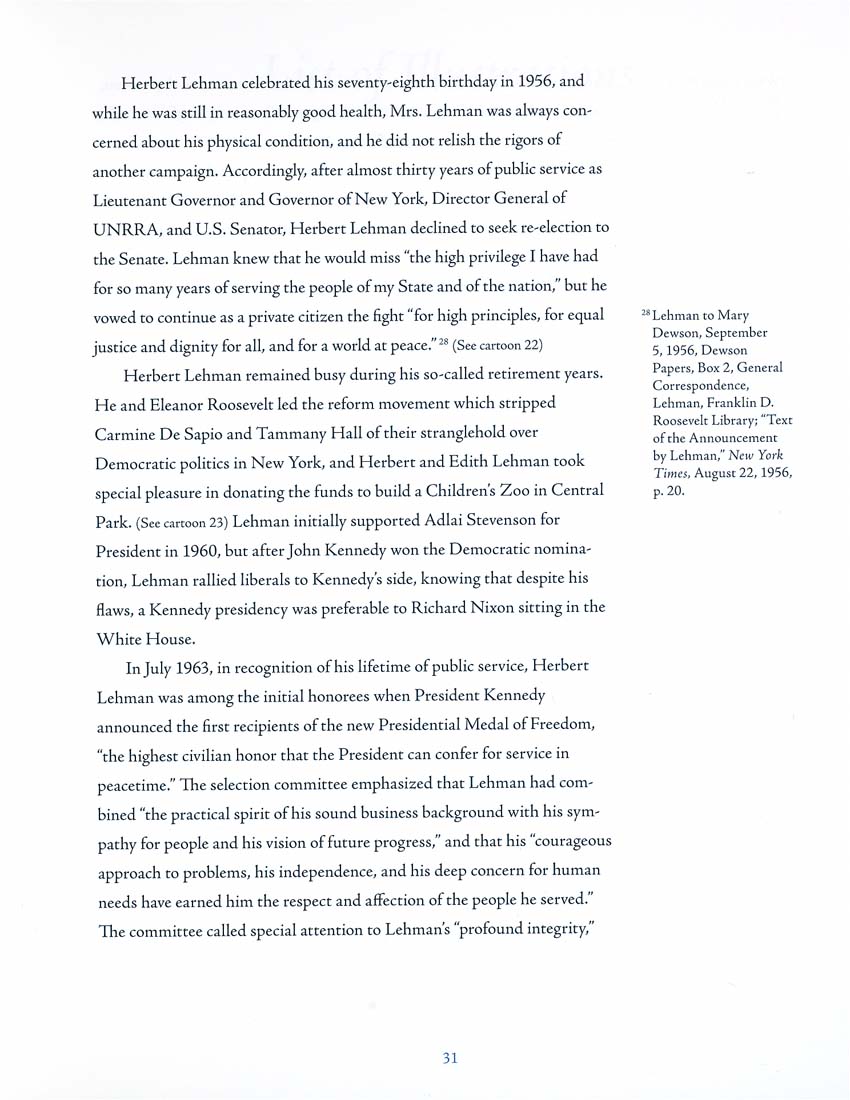Herbert Lehman celebrated his seventy-eighth birthday in 1956, and
while he was still in reasonably good health, Mts. Lehman was always con¬
cerned about his physical condition, and he did not relish the rigors of
another campaign. Accordingly, after almost thirty years of public service as
Lieutenant Governor and Governor of New York, Director Genetal of
UNRRA, and U.S. Senatot, Hetbert Lehman declined to seek re-election to
the Senate. Lehman knew that he would miss "the high privilege I have had
for so many years of serving the people of my State and of the nation," but he
vowed to continue as a private citizen the fight "fot high principles, for equal
justice and dignity for all, and for a world at peace." ^^ (See cartoon 22)
Herbert Lehman remained busy during his so-called retirement years.
He and Eleanor Roosevelt led the reform movement which stripped
Carmine De Sapio and Tammany Hall of their stranglehold over
Democratic politics in New York, and Herbert and Edith Lehman took
special pleasure in donating the funds to build a Children's Zoo in Centtal
Park, (See cartoon 23) Lehman initially suppotted Adlai Stevenson for
President in 1960, but after John Kennedy won the Democratic nomina¬
tion, Lehman tallied liberals to Kennedy's side, knowing that despite his
flaws, a Kennedy presidency was preferable to Richard Nixon sitting in the
"White House.
In July 1963, in recognition of his lifetime of public service, Herbert
Lehman was among the initial honorees when President Kennedy
announced the fitst recipients of the new Presidential Medal of Freedom,
"the highest civilian honor that the President can confer for service in
peacetime." The selection committee emphasized that Lehman had com¬
bined "the practical spirit of his sound business background with his sym¬
pathy for people and his vision of future progress," and that his "courageous
approach to problems, his independence, and his deep concern for human
needs have earned him the respect and affection of the people he setved."
The committee called special attention to Lehman's "profound integtity,"
■'^Lehman to Maty
Dewson, September
5, 1956, Dewson
Papers, Box 2, General
Correspondence,
Lehman, Franklin D.
Roosevelt Library; "Text
of the Announcement
by Lehman," New York
Times, August 22,1956,
p. 20.
31
|








